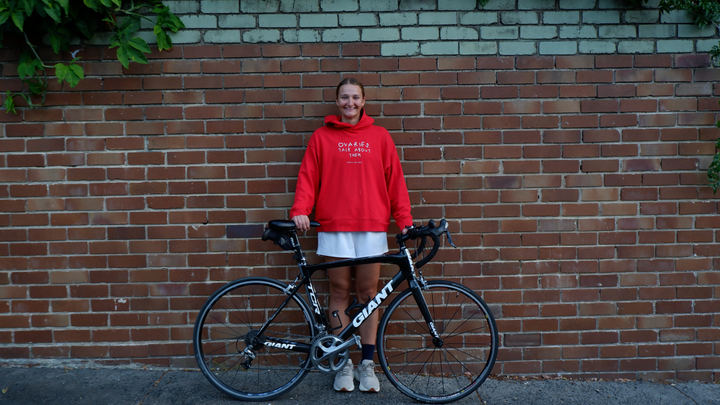
IRONMAN for OVARIAN CANCER RESEARCH
Donation protected
Hello - I'm Julia and this is my Ironman for Ovarian Cancer. It is the third year of fund raising for a cause that lies so close to my heart.
Ovarian Cancer is the deadliest female cancer, known as the 'silent killer,' yet still there is no detection test.
This cancer took my beautiful mum in 2022 after a Stage IV diagnosis in 2016. She is the strongest person I will ever know and I have vouched to continue my efforts to raise funds for a cancer that still has so much more research to go. Despite its high mortality rate, ovarian cancer research has historically been undervalued, and is known to be the most underfunded female cancer.
I would so appreciate any support towards raising funds for an early detection test. Currently there isn't one which causes over 75% of women to be diagnosed in the late stages when it is often too late. This needs to end.
I will be taking part in the Port Macquarie Ironman on the 4th of May in memory of and for Mum ❤️
An Ironman = 3.8km swim, 180km cycle (further than Syd > Newcastle), and a 42.2km run (marathon) which will likely take me somewhere between 13-15 hours.
Donations will go towards the cutting edge Ovarian Cancer Research team at UNSW led by the incredible Dr. Caroline Ford - started by the company Camilla and Marc through their annual campaign “Ovaries. Talk About Them."
Thank you!
More on ovarian cancer:
- Ovarian cancer is currently the deadliest female cancer and has one of the lowest survival rates of any cancer in Australia.
- Unlike many other cancers, the rate of survival has only slightly improved in recent decades. This is partly due to the fact that there is no early detection test, meaning that 75% of cases are diagnosed in an advanced stage - Stages 3 and 4.
- Combined with the aggressive nature of ovarian cancer, the five-year survival rate for women diagnosed with late-stage is 25%. This is lower than the five-year survival rate for all cancers in 1975.
- There is currently no way of detecting ovarian cancer in the early stages. If this was possible, the statistics would drastically shift towards a survival rate of 80-90%.
With increased awareness and funding for research, this is a possibility!
Organizer
Julia Hammans
Organizer
Mosman, NSW